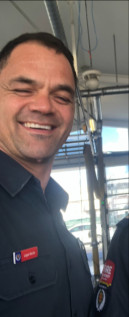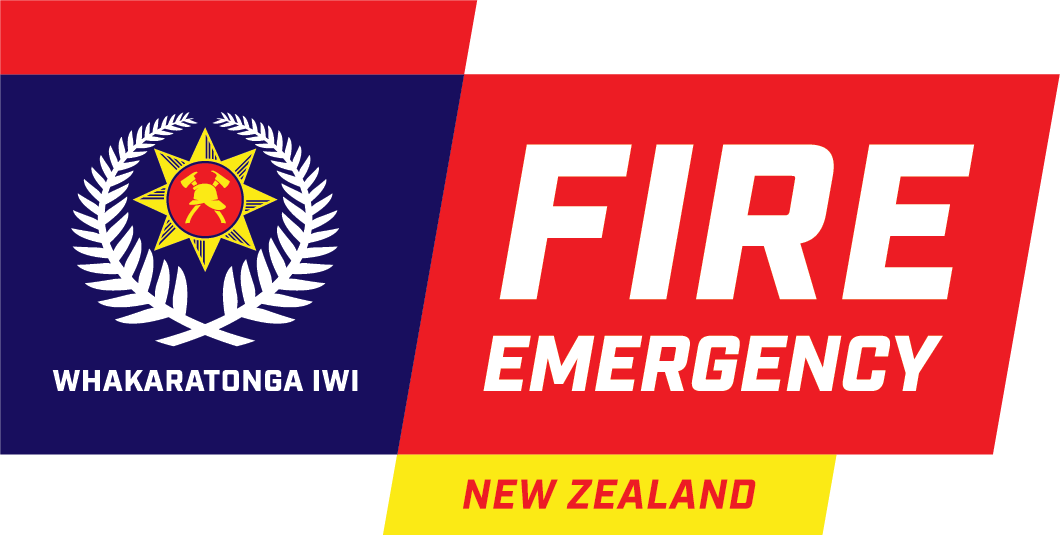"You can’t grow if you're comfortable" SO Logan Martin on cultural education
*Definitions for te reo Māori words are highlighted and can be found in the glossary at the bottom.
You don’t have to be a local of Tāmaki-makaurau to know about “K' road”, but did you know that Karangahape Road was once an important arterial route for Māori to reach the Manukau Harbour for more than 600 years? Or that one interpretation of the name Karangahape follows the legend of a powerful Tohunga called Hape, who performed a karanga on the ridge to welcome the people arriving from Hawaiki into the Waitemata Harbour?

When Mount Roskill’s Station Officer Logan Martin put his name down for the six-week Cultural Discovery Programme he knew he had some good foundational knowledge but wanted to learn more.

“For me, it’s all about growth. You’ve got to put yourself into these things that might make you feel uncomfortable because it’s new or unfamiliar, but you can’t grow if you're comfortable – you just gotta do it”.
Logan was joined by 19 other people from the organisation, as they learnt about tikanga when engaging with Māori, ways to introduce themselves on marae and other cultural considerations for building relationships with tangata whenua.
During the course Ngati-Tahinga Wilson from Ihumatao came to speak to the rōpū about local history and Logan said he learnt more about the place he works and lives in that presentation than he had in his whole life.
“One day we were driving down Karangahape Road and I was able to tell my crew about the story of Hape. They were really interested because no one hears this stuff normally. Having this knowledge helps us to build connections to the areas we’re serving”.

Logan said an unexpected benefit of doing the Cultural Discovery Programme was the relationships he built with the other people taking part.
“Getting to know our FENZ whānau, people I wouldn’t normally have anything to do with, was enriching. It’s also great from a professional point of view, for example if I ever need to contact someone at National Head Quarters about Fire Risk Management I know where to go”.
While it was a diverse group with people attending from across the motu and different parts of the organisation Logan commented that everyone connected over the kaupapa and he was able to see our organisation values like whanaungatanga and manaakitanga in action. “These values are not just a poster on the wall, they’re something real that we can all put into practice”.
Logan recommends that everyone should take part in a course like this if they get the opportunity, even if the thought of learning something new makes you feel uncomfortable – kia kaha!
Kuputaka | Glossary
Tāmaki-makaurau – Auckland
Karanga – Welcome call
Tohunga – Expert, skilled person, priest
Hawaiki – Ancient Homeland
Cultural Discovery Programme – A programme as part of the pilot for Te Aho Tapu, our cultural capability framework
Tikanga - correct procedure, custom, practice
Tangata whenua - indigenous people of Aotearoa
Rōpū – group
Motu - island, country, land, nation
Whanaungatanga - relationship, kinship, sense of family connection, also one of the four of Fire and Emergency’s values [JPG, 97 KB] representing that “we’re better together”
Manaakitanga - hospitality, kindness, generosity, support, also one of the four of Fire and Emergency’s values [JPG, 97 KB] representing that “we serve and support”
Kia kaha - be strong, get stuck in, keep going.
To find out about other learning opportunites like the Cultural Discovery Programme head to the resources page of Te Aho Tapu, or get in touch with the Hiwa-i-te-rangi project team; hiwa-i-te-rangi@fireandemergency.nz
